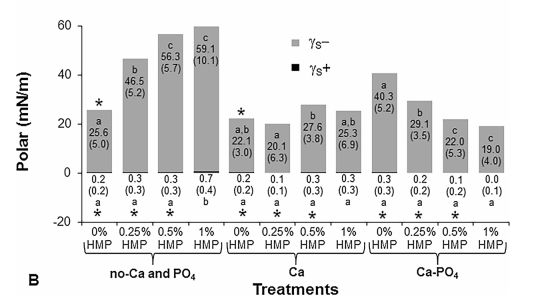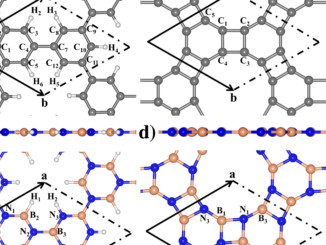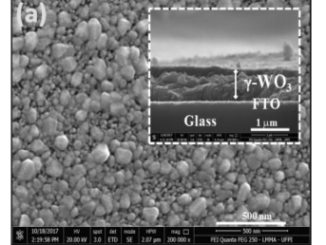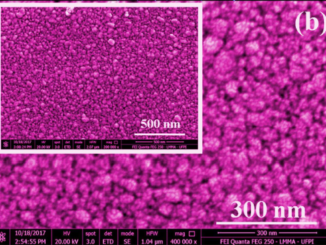
Surface free energy of enamel treated with sodium hexametaphosphate, calcium and phosphate
Abstract: Objective: This study evaluated the capacity of sodium hexametaphosphate (HMP) at different concentrations to alter the surface properties of dental enamel in order to increase calcium and phosphate adsorption.
Design: Bovine enamel blocks (4 mm x 4 mm, n = 144, 12/group) were divided: 0%; 0.25%; 0.5%; and 1% HMP, followed or not by application of solutions containing Ca or Ca-PO4, totaling 12 groups. The treatments were performed for 2 min, and the surface free energy (mN/m) was calculated by measuring the contact angles of three probing liquids (deionized water, diiodomethane and ethylene glycol), which was used to determine the polar and nonpolar components of the enamel surface. Calcium (Ca), phosphate (PO4) and HMP in the solutions treatment solutions were analyzed before and after treatment. The data presented normal and homogeneous distribution and then were subjected to ANOVA, followed by Student-Newman Keuls’ test (p < 0.05).
Results: The higher the% of HMP in the solutions, the greater HMP adsorption and more electron-donor sites on enamel surface were achieved (p < 0.05). Also, Ca adsorption was higher with increasing% HMP in the solutions (p < 0.05), which in turn reduced electron-donor sites on enamel surface. Increased Ca and PO4 adsorption occurred at 0.5% and 1% HMP after treatment with Ca-PO4 solution, resulting in a less electron-donor sites on surface when compared to the other treatments (P < 0.05).
Conclusions: HMP leads to a more electron-donor sites on enamel surface, what promotes greater adsorption of Ca and PO4 ions.
Author(s): Neves, JG; Danelon, M; Pessan, JP; Figueiredo, LR; Camargo, ER; Delbem, ACB
ARCHIVES OF ORAL BIOLOGY
Volume: 90 Pages: 108-112 Published: JUN 2018
PDF: Surface free energy of enamel treated with sodium hexametaphosphate, calcium and phosphate
DOI: 10.1016/j.archoralbio.2018.03.008




